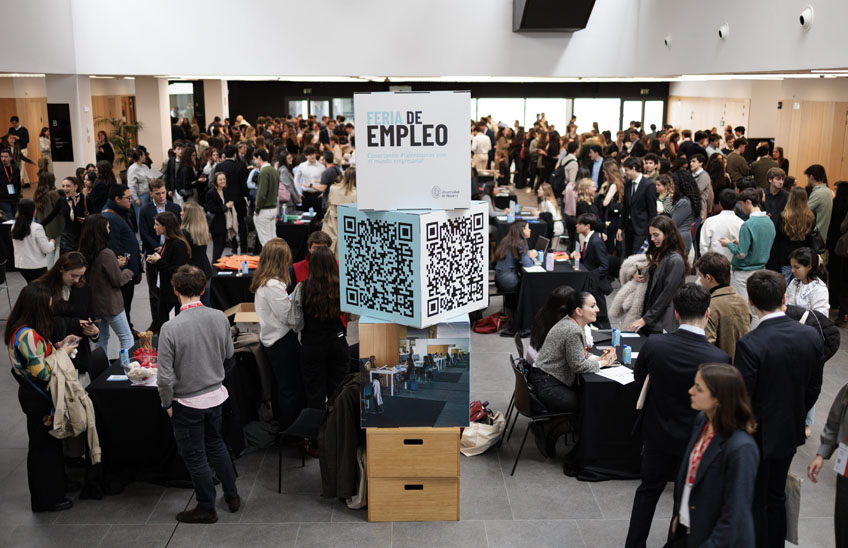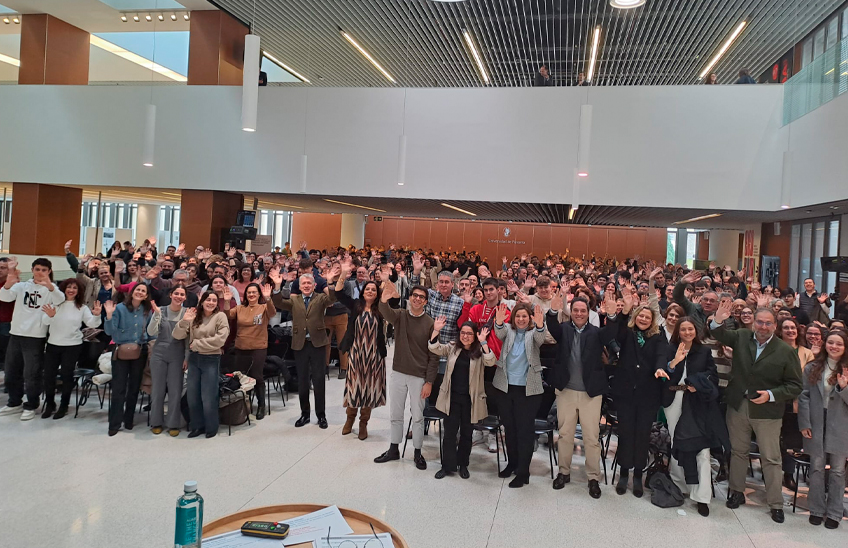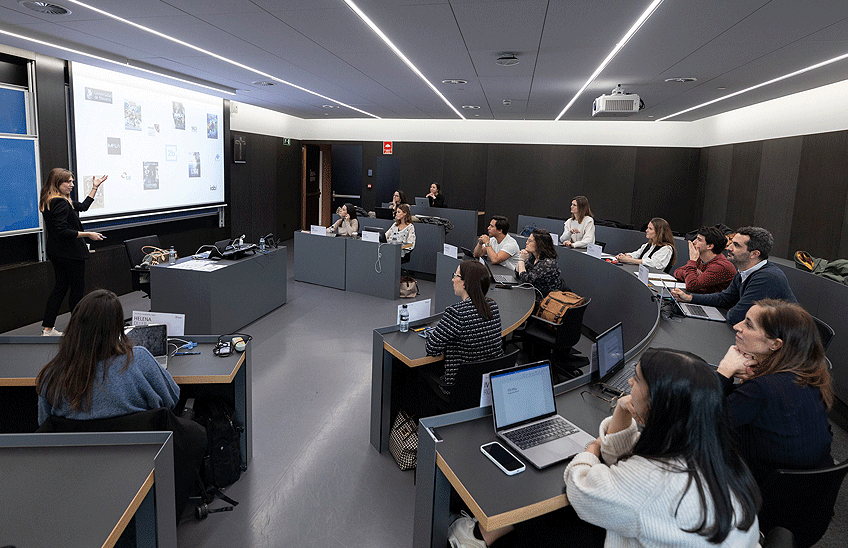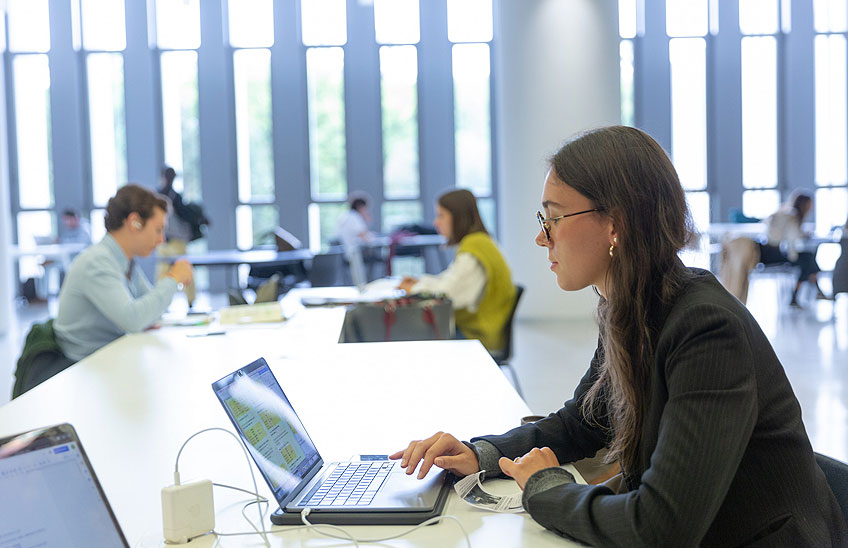A group of students from the University of Navarra devise a smart melatonin diffuser to improve sleep
The project has won the innovation contest of the academic center, to which more than thirty ideas from one hundred students have competed.
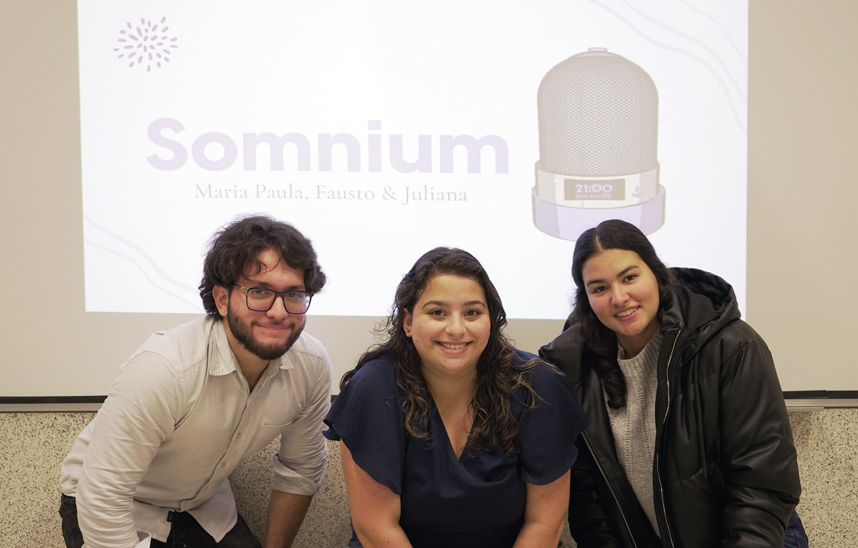
PhotoManuelCastells/From left to right, University of Navarra students Fausto Padilla, María Paula Flores and Juliana Mira Vélez.
Somnium, an intelligent melatonin diffuser -a hormone involved in the natural sleep cycle-, has been the winning idea of The Challenge, the innovation contest of the University of Navarra. Developed by Juliana Mira Vélez (1st year of ADE + Innovation and Entrepreneurship), Fausto Padilla (2nd year of bilingual Audiovisual Communication) and María Paula Flores(4th year of Biochemistry + Science and Business Program), it has beaten a hundred other students in an edition whose challenge, proposed by Stanford University, consisted of improving the health of people to live well at any age, especially in the most advanced ones.
"It's like an Alexa that emits aromas," says Juliana Mira. The diffuser, for which there is already a virtual prototype, is associated with a sensor that measures movements during sleep, and these are recorded in an application that provides recommendations and advice to improve people's sleep. According to Fausto Padilla, another member of group, "sleeping well prevents countless health problems and is directly involved in improving people's quality of life. That's why we want everyone to enjoy a good night's sleep," he says.
The Mobile World Congress, the final step
The submission of award took place during the Demo Day, workshop final of the competition, where the best projects were exhibited. The initiative, now in its third edition, is organized by Innovation Factory, Center for Innovation and Entrepreneurship of the University of Navarra, in partnership with the Imagine Creativity Center of San Francisco and Tantaka, and has as goal promote the innovative spirit of students through the development of social innovation projects.
The competition is designed for students to learn how to identify opportunities and innovatively solve specific challenges. During the competition, they apply the Lombard methodology from Silicon Valley to generate many ideas, select one of them, develop it around a project and present the project to a jury.
The winning team will participate in the national final of the competition along with students from all over Spain to try to get a place on the Imagine Express, a train ride from Barcelona to London where they will have time to perfect their idea before pitching it to a group of investors at The London Eye. The competition will end at the Mobile World Congress, where the winners of this final stage will have a window to showcase their project.

